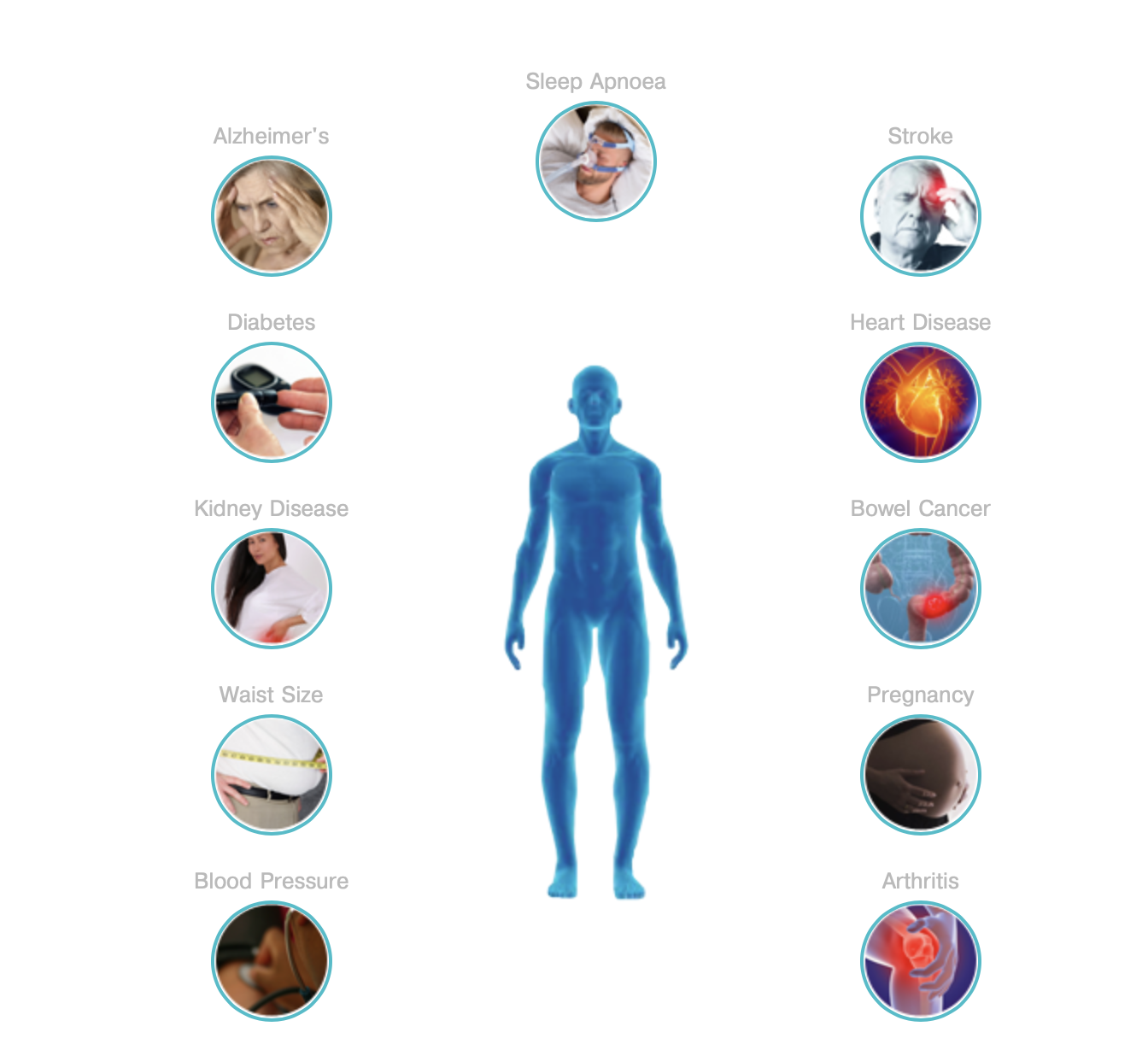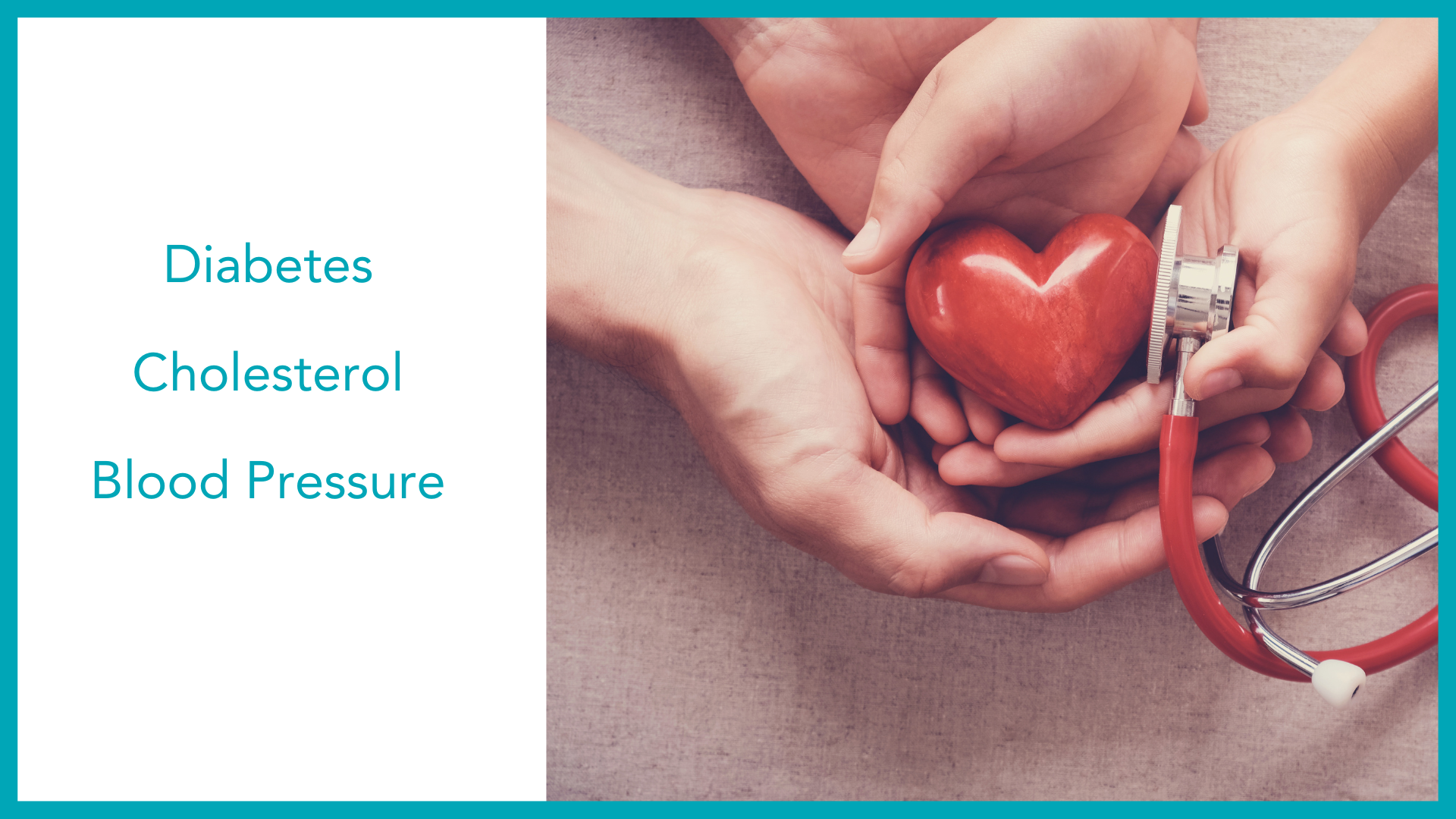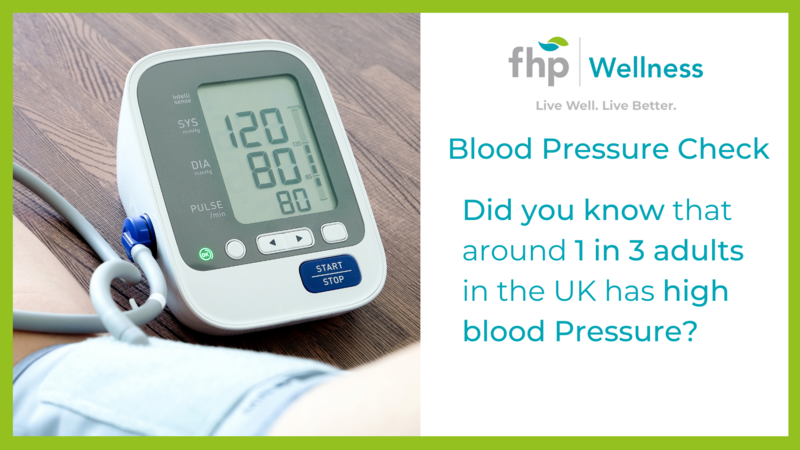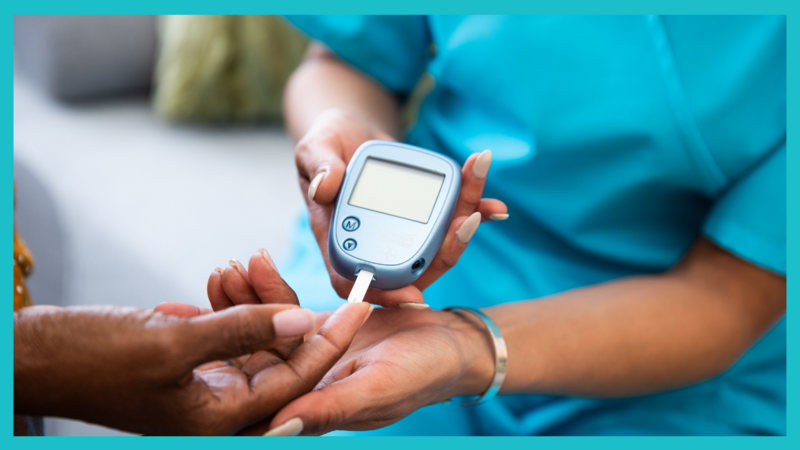Live Well. Live Better.
Helping you to enhance more than just physical and mental wellbeing
HEALTH SCREENING
Did you know that your oral health is connected to your general health?
Oral health coupled with systemic health are well understood to be foundations for improved health outcomes and quality of life for patients. The connection between oral health and general health, also known as The Oral-Systemic Connection, is the link between the health of your mouth and your overall health.

Periodontal disease or gum disease has been associated with a number of health conditions, including heart disease and diabetes. This is why we now provide a Total Health approach offering key health screens that give you a clearer picture of your overall health.
YOUR RESULTS
Your health screening results are to offer you an understanding of what are the healthy ranges, which will not and cannot provide a medical diagnosis. If your results fall out of normal range, it will be your duty to contact your General Practitioner or other healthcare professional for further guidance.


What's your Blood Pressure?
Blood pressure is the term used to describe the strength with which your blood pushes on the sides of your arteries as it's pumped around your body. Low blood pressure (hypotension) is not usually a problem, although it can cause dizziness and fainting in some people. High blood pressure (hypertension) can increase your risk of developing serious problems, such as heart attacks and strokes, if it's not treated.

What are Glucose Levels?
They are a measurement that show how much glucose you have in your blood. Glucose is a main source of energy for both your brain and body, and it is stored in your body as glycgen. Typically, you will have about 4g in your body at all times. Your body works to keep your blood sugar levels steady at all times, as too high or too low can have serious side effects.

What is Total Cholesterol?
It is the overall amount of cholesterol in your blood, including both "good" (HDL) and "bad" (LDL and non-HDL) cholesterol. HDL makes you less likely to have heart problems or a stroke, whereas LDL (and non-HDL) is the opposite. Total cholesterol provide a useful picture of your risk of heart disease and stroke.
What is your Body Mass Index (BMI)

BMI is a measure that uses your height and weight to work out if your weight is healthy. It takes into account natural variations in body shape, giving a healthy weight range for a particular height.
Your ethnic group can also affect your risk of some health conditions. You should not use BMI as a measure if you're pregnant. Get advice from your midwife or GP if you're concerned about your weight.
Diabetes and Oral Health

Did you know diabetes can also cause problems in your mouth? People with diabetes have a higher chance of having periodontal (gum) disease, an infection of the gum and bone that hold the teeth in place. Periodontal disease can lead to pain, bad breath that doesn't go away, chewing difficulties, and even tooth loss.
Can diabetes cause dental problems?
People with poorly controlled diabetes are at greater risk for dental problems. They're more likely to have infections of their gums and the bones that hold their teeth in place, because diabetes can reduce the blood supply to the gums. High blood sugar may also cause dry mouth and make gum disease worse. Diabetes that is not controlled well leads to higher blood sugar (glucose) levels in the mouth fluids. This promotes the growth of bacteria that can cause gum disease.
Mouth problems linked to your diabetes can mean:
• Tooth decay
• Gum inflammation (gingivitis)
• Infection in the soft tissue and bone that support the teeth (periodontitis) dry mouth (xerostomia)
• Fungal infections (oral thrush) irritated and sore mouth, meaning you might have difficult wearing dentures, tooth loss and abscesses.
Cardiovascular Disease and Oral Health
Gum disease (periodontitis) is associated with an increased risk of developing heart disease. Poor dental health increases the riskk of a bacterial infection in the blood stream, which can affect the heart valves. Oral health may be particularly important if you have artificial heart valves. Gum disease may increase the risk of heart disease because inflammation in the gums and bacteria may eventually lead to narrowing of important arteries.
Does Flossing reduce heart disease?
Such a strong link between periodontitis and cardiovascular disease makes the simple task of flossing a no-brainer for a healthy heart. Healthy teeth may also reduce your risk of clogged arteries. The link between oral and cardiovascular health, inflammation can lead to both gum disease and obstructive arterial plaque.
How can we improve our overall health?
Small, positive changes will make a big difference. Here are a few tips to get you started:
• Maintain a healthy weight
• Exercise regularly - ideally 150 minutes per week
• Don't smoke
• Eat a healthy and balanced diet
• Drink less alcohol
For more information, please visit https://www.nhs.uk/live-well/
*Diabetes UK, https://www.diabetes.org.uk/
* NHS, https://www.nhs.uk/live-well/healthy-weight/bmi-calculator/
* Heart UK, https://www.heartuk.org.uk/
The Six Dimensions








